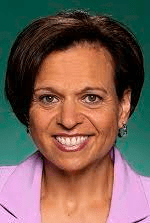The national communications regulator will receive more than $10 million in the upcoming federal budget to phase in an SMS sender registry in an attempt to curb the growing problem of text message scams.

Communications minister Michelle Rowland says the Australian Communications and Media Authority (ACMA) will be tasked with establishing the SenderID registry, which will prevent scammers from imitating government brand names such as myGov or AusPost in text message headers.
For example, the registry will allow Australia Post to register its sender ID, enabling telcos to block incoming messages that are imitating AusPost.
“The Registry will actually have a list of numbers that entities like Australia Post says are their legitimate numbers”, Ms Rowland told the Nine Network. “If a scammer tries to use a different number, the telco will block that from getting onto someone’s device.”
The model, which the government hopes to have in place in about a year, is currently being implemented in Singapore and the UK, she said, and ACMA is consultating with industry and the telco sector to get the registry up and running.
The measure complements anti-scam rules introduced last year requiring telecommunications providers to identify, trace and block SMS scams, which saw more than 90 million scam texts blocked between July and December 2022, the minister said.
Announcing the initiative over the weekend, Ms Rowland said almost one in two Australians have been scammed or exposed to a fake text message over the last 12 months.
According to the government, there were almost 80,000 reports about scam texts last year, an increase of 19 per cent. The true figure is believed to be higher as not all scams are reported.
At least $3 billion dollars is estimated to have been scammed in 2022.
It comes after the government announced last year it was establishing a National Anti-Scam Centre (NASC) within the Australian Competition and Consumer Commission (ACCC) as a public-private sector partnership involving government, law enforcement, telecommunications providers, financial services and digital platforms.
The federal budget will handed down on May 9.





Leave a Reply